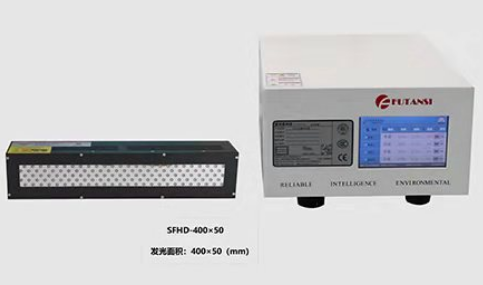What are the external and internal factors affecting the cur
What are the factors affecting UV-LED curing? The principle of UV-curing is well known. It is a UV curing equipment that uses UV glue or UV ink to be illuminated by UV light at a specific wavelength. The specific wavelength energy of UV LED triggers the photosensitizer in UV glue or UV ink to complete a series of crosslinking reactions, thus converting the UV glue or UV ink from liquid to solid.
The curing rate of UV-LED is an important parameter of UV-LED curing equipment to a certain extent, but the mentioned people are less than the light power, but in fact, there are many factors affecting the curing efficiency, lack of technology, irradiation height and so on. It is difficult for many people to understand the term UVLED curing rate. In short, it is the speed at which ultraviolet curing devices irradiate substances from liquids to solids.
So what are the factors that affect the cure rate?
1. Ultraviolet curing wavelength and intensity. If the energy is high, the curing time is short, and vice versa.
2. Additive. Some additives are added to the adhesives, which will affect the curing speed.
3. The curing thickness is large, and the cured adhesive layer solidifies quickly, but the cured surface will absorb some ultraviolet rays, the ultraviolet intensity will weaken and the curing speed will be reduced. Therefore, the cured adhesive layer solidifies thinner, and vice versa.
4 as shown. The combination of UV-LED curing, the number, type, layout, power mode and even the size of LED will have a significant impact on the system performance. Optimizing the combination of these elements to produce a high-power ultraviolet LED matrix
5. Therefore, the curing rate of curing equipment can hardly be directly reflected by certain numerical values. After research and analysis, different curable adhesives were recorded by FT-ir, and the peak area of CC double bond was recorded and tabulated. Non-uniform curing. It starts a little slower. About 5s, the reaction rate is faster. The curing was completed in about 12 seconds. This may be because carbon-carbon double bonds need to absorb some energy when they are opened, and the crosslinking process is relatively fast.

【Recommended reading】
- What are the types of LED light sources?
- These points must be noticed when using UVLED water
- What are the applications of UV LED curing technolo
- What are the main application directions of UVLED c
- Why is there always a layer of oil on the surface a
- What problems may be encountered in ink irradiation
- What problems may be encountered in ink irradiation
- The application fields of UVLED ultraviolet cold li
- What are the wavelength of the UV light source?
- Which coatings are used for UV LED light source?





